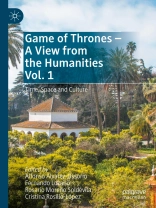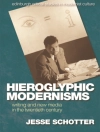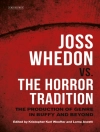This book reflects on time, space and culture in the Game of Thrones universe. It analyses both the novels and the TV series from a multidisciplinary perspective ultimately aimed at highlighting the complexity, eclecticism and diversity that characterises Martin’s world. The book is divided into three thematic sections. The first section focuses on space—both the urban and natural environment—and the interaction between human beings and their surroundings. The second section follows different yet complementary approaches to Game of Thrones from an aesthetic and cultural perspective. The final section addresses the linguistic and translation implications of the Game of Thrones universe, as well as its didactic uses. This book is paired with a second volume that focuses on the characters that populate Martin’s universe, as well as on one of the ways in which they often interact—violence and warfare—from the same multidisciplinary perspective.
Tabella dei contenuti
1. Reflections on Time, Space and Culture in Game of Thrones.- Part I: “Winter is Coming”: Landscape, Climate Change and Natural History in Game of Thrones.- 2. Ludus Thronis: De novem orbis miraculis—The Wonders of the Ancient World in George R. R. Martin’s A Song of Ice and Fire.- 3. ‘There had been a Great Strength in those Stones’: Materiality and Archaeological Perspectives of Westerosi Fortifications.- 4. From Python to Viserion: Dragon’s Natural History.- 5.A Song of Ice and Fire as a Narrative of Environmental Crisis and Climate Change.- Part II: “You Win or You Die”: Aesthetic and Cultural Approaches to Game of Thrones.- 6. Game of Thrones and the Sublime.- 7. ‘When You Play the Game of Thrones, You Win or You Die”: Game of Thrones between Mainstream Culture and Counterculture.- 8. The Symbology of Popular Culture in Game of Thrones: Carnivalization and Tyrion’s Wedding Party.- Part III: “One Voice May Speak you False, but in Many there is Always Truth to be Found”: Linguistic and Temporal Bridges.- 9. A Reception Study of the Game of Thrones Audiovisual Translations into Spanish: Translation Problems vs. Translation Errors.- 10. Study of the Translation of the Fictional World of Game of Thrones.- 11. The Portrayal of Interpreters in Audiovisual Texts, Illustrated by the Character of Missandei in the TV Series Game of Thrones.- 12. Westeros Versus the West: A Ludic Bridge for Teaching History.
Circa l’autore
Alfonso Álvarez-Ossorio is Professor of Ancient History at the University of Seville, Spain. Both his Ph D thesis and most of his research has been devoted to the socioeconomic and cultural study of piracy during the late Roman Republic and the early Empire. He is editor of The Present of Antiquity. Reception, Recovery, Reinvention of the Ancient World in Current Popular Culture (2019).
Fernando Lozano is Professor of Ancient History at the University of Seville, Spain. His research focuses on the study of Roman religion during the Empire and, specifically, on the imperial cult, as well as Reception studies. He has authored and edited several monographs on these topics.
Rosario Moreno Soldevila is Professor of Latin Philology at the Pablo de Olavide University, Seville, Spain. Her main lines of research include the Epigrams of Martial, the oeuvre of Pliny the Younger and amatory motifs in classical and late Latin literature. She has authored or co-authored 10 monographs, including A Prosopography to Martial’s Epigrams (2019).
Cristina Rosillo-López is Professor of Ancient History at the Pablo de Olavide University, Seville, Spain. Her lines of research include the political history and political culture of the late Roman Republic. She has authored and edited several monographs, including Political Conversations in Late Republican Rome (2022).












